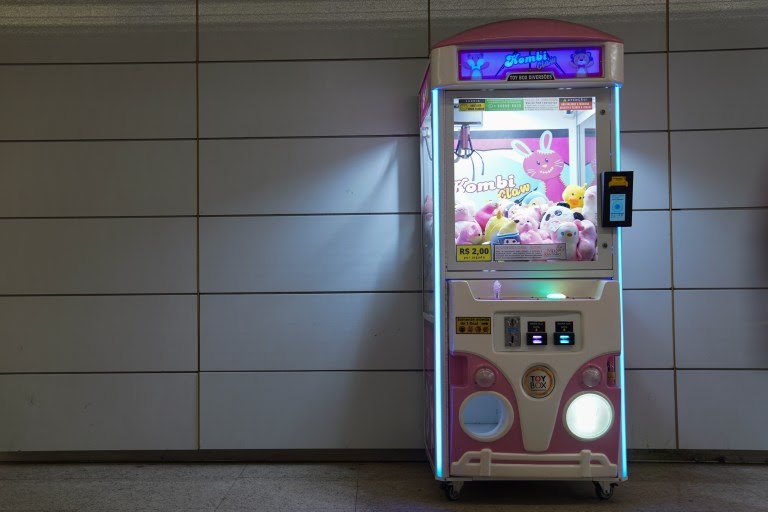Rio de Janeiro — a city often synonymous with crime, corruption, and drug warfare — has identified an unlikely new public enemy: plushies. These soft toys, dispensed from joystick-controlled claw machines, have recently come under the scrutiny of local law enforcement. In a city known for its street muggings, armed militias, and high-powered drug traffickers, the sudden focus on these stuffed animals might seem unexpected, but the controversy around these claw machines highlights a broader issue.
The Claw Machine Craze
Claw machines, ubiquitous in arcades and shopping centers, lure players with the promise of winning a coveted prize — usually a stuffed animal. However, many players claim the machines are rigged, programmed to make winning incredibly difficult. Although claw machines have been around for decades and their mechanics are widely recognized, the growing frustration in Rio de Janeiro has pushed the police to take action.
Local authorities allege that some of these machines are operating illegally, exploiting consumers who pour money into the machines but walk away empty-handed. In particular, police have raised concerns about machines that are unlicensed or improperly programmed, effectively turning them into what they call “mini-casinos.”
Gambling or Gaming?
In Brazil, gambling is heavily regulated, with only state-controlled lotteries being allowed to operate legally. As a result, any activity that involves a payment for a chance to win a prize is scrutinized under gambling laws. Claw machines, which are supposed to provide a fair chance to win based on skill, are now being investigated for potentially crossing that line into illegal gambling territory.
Rio de Janeiro’s Consumer Protection Agency, alongside the police, has launched an investigation into whether certain establishments are rigging the machines, making it nearly impossible for players to win. By reducing the strength of the claw or setting win frequencies to extremely low levels, these operators may be skirting the boundaries of legality.
A New Focus for Police
Given Rio de Janeiro’s long history of serious crime problems — from corrupt politicians and militias to violent drug gangs armed with Kalashnikov rifles — the sudden focus on claw machines might seem trivial in comparison. However, authorities say the crackdown reflects their commitment to consumer protection, regardless of the scale of the issue.
Police raids on arcades and entertainment venues have led to the seizure of several machines deemed illegal, and fines have been imposed on businesses found to be violating the law. “It’s about protecting the public from fraudulent business practices,” said one officer involved in the investigation.
A Symbol of Larger Issues
While claw machines may seem like a lighthearted diversion, their sudden emergence as a police target hints at the broader challenges facing Rio. The city’s informal economy often operates in the shadow of legal oversight, whether it involves street vendors, unregulated gambling, or underground markets. The crackdown on claw machines highlights just how pervasive these issues are, even in areas that seem far removed from the violence and corruption typically associated with the city.
For some residents, the police action is welcome. One arcade-goer noted, “I’ve lost so much money trying to win a toy for my kid. It’s about time they did something.” Others, however, question whether authorities should be focusing on such relatively minor concerns when far larger issues continue to plague the city.
Conclusion
In a city where crime and corruption run deep, Rio de Janeiro’s latest public enemy — stuffed animals — may seem like an odd target. Yet, as authorities investigate claw machines for possible illegal practices, the issue speaks to a broader challenge of consumer protection and regulation in an environment where legal lines are often blurred. For now, the city’s claw machines remain under close scrutiny, as police work to ensure that even in the world of arcade games, the odds aren’t unfairly stacked against the players.






